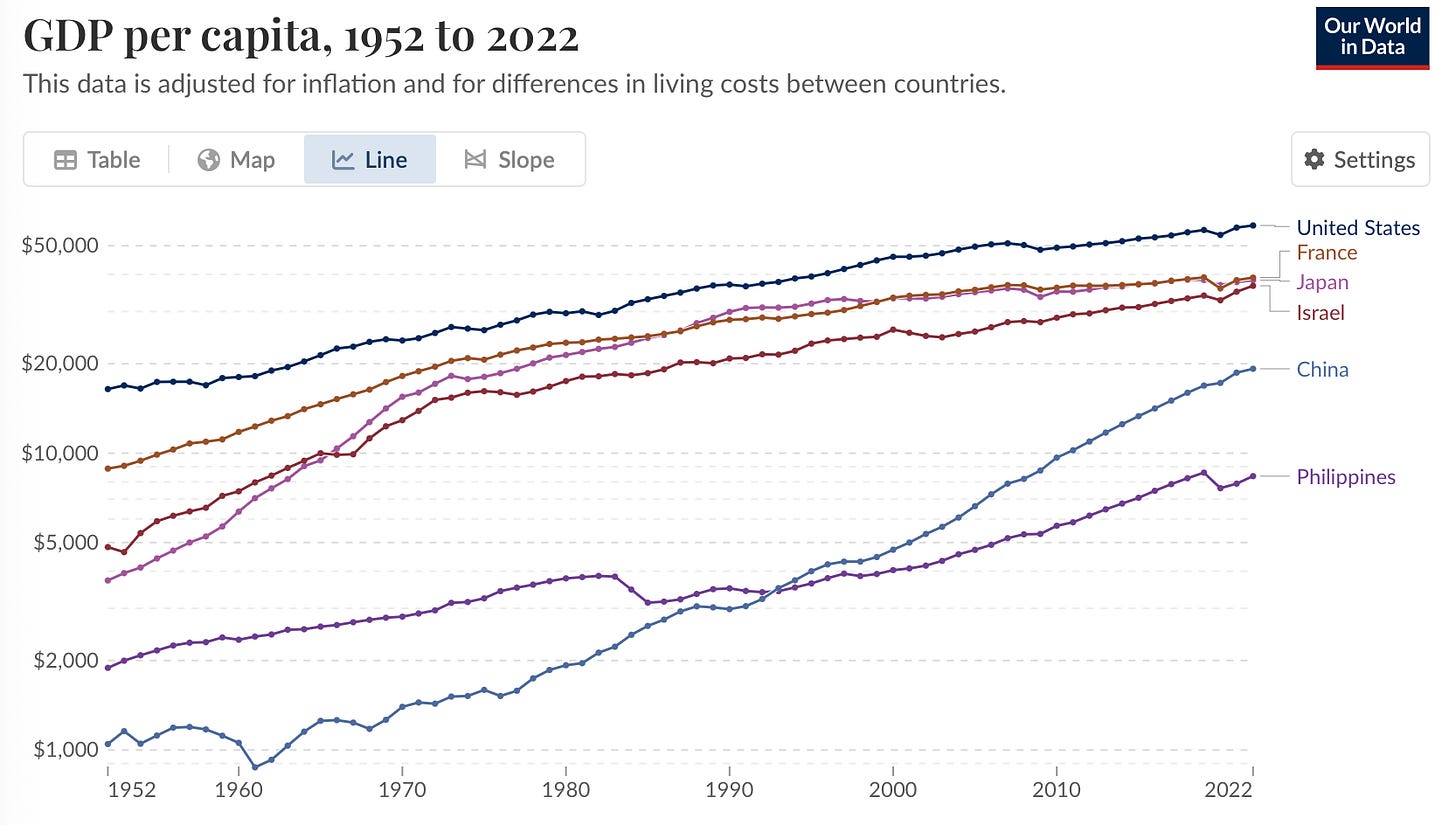America should stop giving Israel financial aid
It's time to be less involved in a conflict between two unreasonable parties
Back in 2014, when the Israeli-Palestinian conflict was getting less attention, I had the chance to interview then-President Barack Obama about foreign policy. This kind of on-the-record newsmaker interview isn’t typically the kind of journalism I do, so it was an interesting moment in my career.
And I resolved, if I got the chance, to ask Obama what I thought was an underrated question about the US-Israel relationship: Setting aside the many controversies about the conflict, what is the justification for giving direct financial assistance to a country that isn’t poor?
I asked Obama something about the “pivot to Asia,” and he gave an answer that mentioned, among other things, recent disaster relief efforts the US had spearheaded in the Philippines. This had nothing to do with Israel, but it gave me an opening — the Philippines is a democracy, it’s a country the US has historic ties with, it’s in a region of strategic interest to the United States, and critically, the Philippines is poor. Israel, meanwhile, is on a par with France and Japan.
The United States is allied with France and Japan. We do things that are helpful for France and Japan (and vice versa). But we don’t give them financial assistance, because they’re rich!
Obama basically ducked the question:
Well, our relationship with Israel is in many ways unique. It's our strongest ally in the region. Our people-to-people ties are unmatched. And partly because of world history, the vulnerabilities of a Jewish population in the midst of a really hostile neighborhood create a special obligation for us to help them. I think the more interesting question is if you look at our foreign assistance as a tool in our national security portfolio, as opposed to charity, and you combine our defense budget with our diplomatic budget and our foreign assistance budget, then in that mix there's a lot more that we should be doing when it comes to helping Honduras and Guatemala build an effective criminal-justice system, effective police, and economic development that creates jobs.
I think his posture on this reflected a synthesis that was already pretty untenable by his second term, but it happened to have not exploded. Obama wanted to use material assistance to signify solidarity with the pro-Israel political perspective, but he also felt an ethical or diplomatic obligation to pressure Israel to engage with the Palestinian Authority on the idea of a two-state solution. This made the Netanyahu government and pro-Israel institutions in the United States angry with Obama; the fact that the pressure didn’t accomplish anything made pro-Palestinian activists angry too.
This was a niche topic of concern at the time of the interview, but a decade later, in the context of a hot war, it’s something a lot of people care about, with everyone mad at Joe Biden.
Since almost nobody actually likes the Obama-Biden approach to Israel, it’s worth considering what a viable alternative might look like. And when you need to change things up, it’s a good idea to revisit the fundamentals:
Giving money to a country that is much richer than its rivals does not make a lot of sense.
The case against doing so can be made in ways that do not require endorsing particularly dramatic criticisms of Israel.
Keep reading with a 7-day free trial
Subscribe to Slow Boring to keep reading this post and get 7 days of free access to the full post archives.


